The Reggio Emilia Approach is an innovative and inspiring approach to early childhood education which values the child as strong, capable and resilient; rich with wonder and knowledge. Every child brings with them deep curiosity and potential and this innate curiosity drives their interest to understand their world and their place within it.
Source: http://www.aneverydaystory.com/beginners-guide-to-reggio-emilia/main-principles/
Genius Hour, a “progressive” approach to teaching and learning is quickly sweeping classrooms across the globe. However, the notion of encouraging kids to learn through play has been around forever. Jean Piaget was a pioneer in researching how kids learn. His theory of constructivism suggests kids learn by doing and making connections. Seymour Papert was a student and colleague of Piaget who coined the term constructionism – that is kids learn by making mental and physical models of the world around them. Papert, often regarded as the godfather of educational technology, was a bit of a disruptor who made bold claims against decisions at the school level. He was never fond of computer labs and can be quoted as saying “we don’t teach kids about pencils at the pencil lab” because he wanted the computer to be seen and used as a tool for learning, not simply typing as it once in many cases when the computer lab was derived.
After World War II, villages in Reggio Emilia, Italy decided their kids should learn through play based approaches at very young ages. With the help of psychologist Loris Malaguzzi, the Reggio Emilia approach was founded on these principles:
- Children must have some control over the direction of their learning;
- Children must be able to learn through experiences of touching, moving, listening, and observing;
- Children have a relationship with other children and with material items in the world that children must be allowed to explore;
- Children must have endless ways and opportunities to express themselves.
Here we are in late 2016 and I love the work being shared regarding Genius Hour and Passion Projects. However, my concern is that we limit these to scheduled activities based on a structured week made up of isolated subjects and strands due to systematic policies, procedures and regulations. After all, evaluating student centred learning approaches can be very challenging in the era of standardization. Fortunately, we have the Teachers Throwing Out Grades (#ttog) movement and countless innovative educators moving the ship forward.
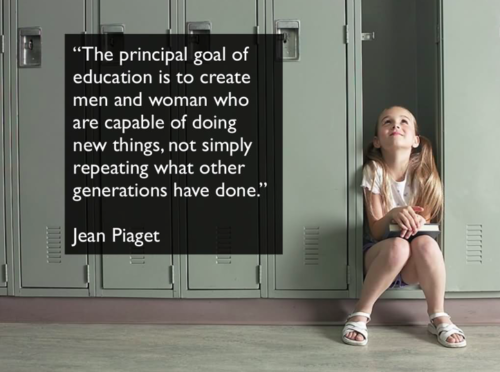
Looking forward I am confident new technologies (like HoloLens) will continue to shift pedagogy to a place those before us dreamed about. With tools like Minecraft, we can create things like Papert’s Mathland.
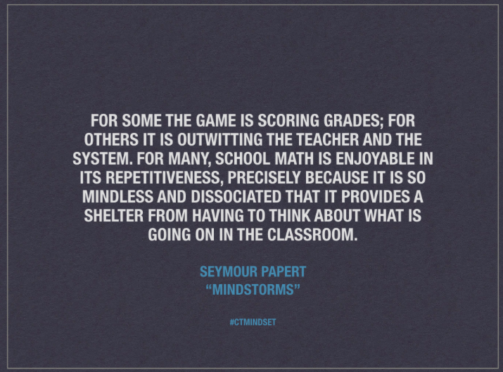
Gary Stager is a huge advocate for Papert’s work and continues to write and share his legacy.
Papert said that no pedagogical innovation of the past century has had any real impact on math education and if that were not disconcerting enough, it ultimately meant that in practice, no matter how progressive or learner-centered a school aspired to be, there was one point in the school day when “coercion was reintroduced into the system.” Math class was when kids felt badly about themselves and were being taught irrelevant tricks they might need one day.
Once we accept that school is nothing more than an idea that we’ve all agreed to follow, the possibilities become limitless. #edchat
— Mike Ritzius (@mritzius) March 18, 2016
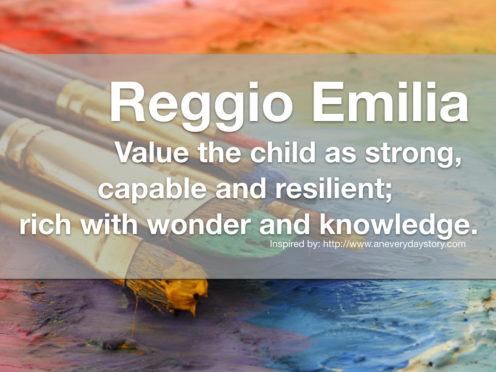
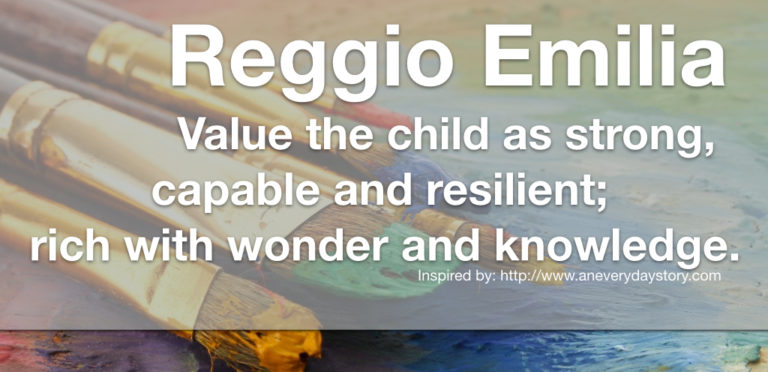
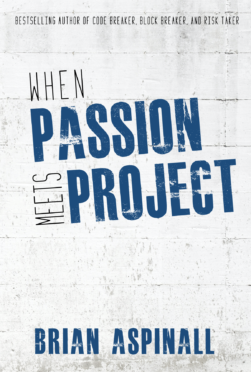 For all the kids who grow up in a small town and think they don’t stand a chance. You do. I was once that kid.
For all the kids who grow up in a small town and think they don’t stand a chance. You do. I was once that kid.